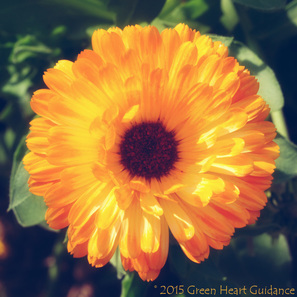
More recently, I became aware of a very disturbing pattern among the remaining people on my friends list. Very few of the people whom I let see my most intimate posts were able to support me in my disability discrimination struggles. When I post about being discriminated against, there were crickets chirping on a regular basis. Had I posted that I had been told to cover up while breastfeeding, a large portion of of them would have been outraged and would have called for a nurse-in. They would have stirred up online protests and would have gotten the media involved. Had I posted that I was stopped by the police for driving while black, another large portion would have been up in arms, ready to protest against racial discrimination. But when I post that I am experiencing disability discrimination, almost none of my “friends” could be bothered to say something to me either on or off of Facebook.
To me, that is very telling. Friendship is supposed to be in good times and in bad. Friends are supposed to want to celebrate your joys and support you in your suffering. As Stephen and Ondrea Levine state in their book Embracing the Beloved, “To be in relationship is to open to the life pain of another on the way to yourself.” I am someone who gives to the limits of my being when others are hurting, yet I often do not find people who want to give in return. Furthermore, it is very hard to find friends who want to support you when your issues are not a hot cause or something they can identify with personally. Perhaps they are too influenced by the media and choose to only support causes that are popular right now such as #blacklivesmatter or #breastcancerawarenessmonth (not that those aren't extremely valid causes).
Let’s have a reality check: Every single person in this world who is not disabled is only one major accident or infection away from being disabled themselves. Perhaps that is why no one wants to see the blatant ongoing discrimination I and many others face on a daily basis in our society. They are too scared to recognize that someday they, too, may be disabled and in need of assistance. If you have ever told yourself that disability discrimination is an issue that doesn’t affect or matter to you, stop and ask yourself: Why don't you actively support the disabled in our society? What are your prejudices? What are your fears? What makes you potentially unable or unwilling to support this problem even on the very local level of saying, "I'm sorry you got treated like a second-class citizen" to one of your friends when they experience disability discrimination?
So many people have told me, “But I don’t know what to say.” That, too, is an indication of personal work that they need to do. When these friends see other friends or acquaintances struggling with personal troubles, the death of a loved one, or another life challenge, they have no problem offering support. They offer up generic words of encouragement: "I'm sorry you're facing this." "I am sorry you hurt." "I hope things change for you." "I wish you weren't having to go through this." Using the examples above, even when friends don’t understand struggles on a personal level because they aren't black or they haven't had breast cancer, they still know how to say, “I’m sorry you are having a rough time” or even "That sucks!" It's Basic Friendship 101. That is part of what being a friend is about. If they chose to, they would be able to apply the same skills to their disabled friends and their struggles. However, with the topic of disability discrimination, people, even those who purport to be my friends, want the issue to be invisible. They don’t want to have to face it.
The sad reality is that I’ve done another Facebook purge as things like this show me clearly who my friends and acquaintances really should be. They are the ones who understand that my life is a roller coaster, just like most other humans', and if they want to be my friend, they have to be there for both the ups and the downs. I have found that fair-weather friends are abundant in this world, and I really don’t have a need for them. It’s the friends who are with me through thick and thin that really count.
© 2015 Elizabeth Galen, Ph.D., Green Heart Guidance, LLC
 RSS Feed
RSS Feed